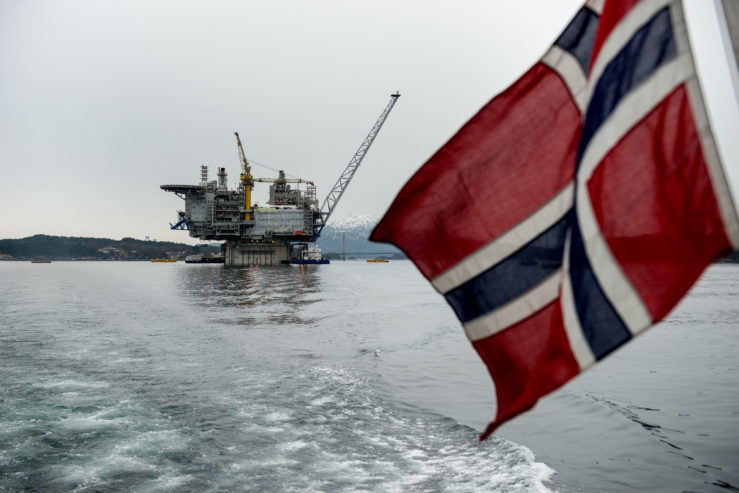Norway’s $1 trillion sovereign wealth fund is about to get the green-light to dump more than $13 billion in stocks linked to fossil fuels as well as a broad range of emerging-market bonds.
With broad support, parliament will late on Wednesday approve a spate of changes, including a watered down plan to dump oil explorers and producers that spares the biggest global petroleum companies such as Royal Dutch Shell Plc and Exxon Mobil Corp.
It’s nonetheless a milestone for western Europe’s biggest oil-producing country and the global investment community. The decision has also been seized on by climate activists eager to choke off capital to fossil fuel producers.
But Norway has been adamant that the move is only a matter of reducing overall exposure to crude prices. The final divestment list will be worked out between the Finance Ministry and the central bank after the legislation has passed, but initial estimates put about $7.5 billion in oil and gas stocks on the selling block.
“We’ll need to come back to the timing of implementation, which will depend among others on the bank’s advice,” said Therese Riiser Walen, spokeswoman at the Finance Ministry, which oversees the fund.
Coal Stocks
The impact of tighter restrictions on the fund’s coal investments is more transparent. In addition to an existing ban on companies that base more than 30% of their activity or income on thermal coal, the fund will observe an absolute limit of 20 million tons for miners and 10,000 megawatts for utilities.
Two climate groups, Urgewald and Future in our hands Norway, estimate 8 coal companies will be divested, equaling $5.8 billion in stocks and bonds. They also urged to the fund to divest a further 18 companies linked to new power plants.
Among the companies affected could be Anglo American Plc, Glencore Plc and RWE AG, according to Urgewald.
The fund will be cleared to invest in unlisted infrastructure for renewable energy, though the government has proposed a cap of 2% of the fund within its so-called environment-related mandates, whose upper limit will be doubled to 120 billion kroner ($14 billion).
Parliament is set to let the fund cut government and corporate bonds from emerging markets. That decision also falls short of the central bank’s initial proposal to narrow bond holdings to just euros, dollars and pounds, and the fund will still be able to invest as much as 5% of its fixed-income portfolio in emerging markets.



